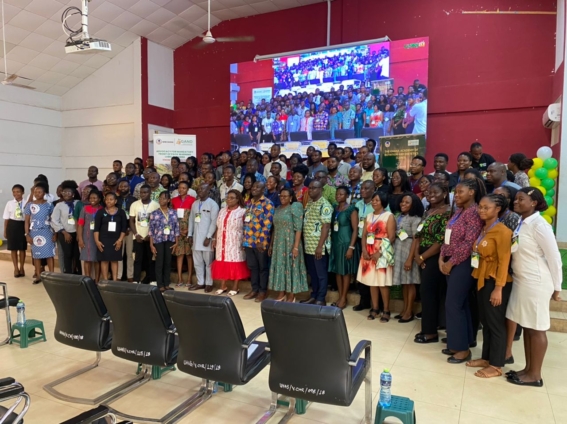Stakeholders are pushing for a policy on front-of-package warning labelling to be introduced to help enlighten consumers on the content of products on shelves on the markets.
This is targeted at guiding consumers to pick processed foods that would not endanger their health, in a bid to reduce incidents of non-communicable diseases such as obesity, and diabetes among others.
Research has revealed high consumption rates of processed foods across the country, leading to increasing rates of non-communicable diseases which risks the future of the country.
This was affirmed at a symposium jointly organized by the Ghana Academy of Nutrition and Dietetics (GAND), the Departments of Nutrition and Dietetics, and Family and Community Health of the University of Health and Allied Sciences (UHAS).
Prof Paul Amuna of the School of Public Health of UHAS partly attributed the high incidence of consuming unhealthy food to the lack of knowledge of consumers on the content of processed foods they purchase.
He said there is a higher national burden of communicable diseases on developing countries, hence the need to introduce front-of-the-package warning labeling to improve the knowledge of consumers on the contents of products.
He said the front-of-the-package policy had already been drafted, subjected to stakeholders' scrutiny, and yet to be submitted to the Ministry of Health for the necessary parliamentary proceedings.
“Health literacy in Ghana is important, nutrition literacy is even more important because we need to get the message to the public about what is good, what is healthy for them to make healthier choices for themselves and their families.“
“And I hope that this symposium we have here today in UHAS will help us along those lines to promote front-of-pack labeling as one of the tools in the toolbox. It is just one of the tools, there are many others, and all these have to be part of the government’s policy process, the Public Health Act. And we need to make Ghanaians aware that these things exist”, he said.
The Vice Chancellor of UHAS, Prof Lydia Aziato emphasized the significant role of text size of labels for easy reading and assimilation of the messages displayed.
She was optimistic that a strong collaboration among stakeholders would contribute to ensuring there are safe processed foods on the counters across the country, to warrant healthy living.
Latest Stories
-
‘You may control the present, but history will judge you’ – Minority fires at EOCO boss over Hannan Wahab arrest
31 minutes -
World Bank backs Ghana $360m to strengthen macroeconomic stability
47 minutes -
GH¢80m bail for Hannan Wahab and wife is pre-trial punishment – Minority cries foul
60 minutes -
From the pitch to politics: The FIFA World Cup as a tool of global soft power
1 hour -
Academy XI beat Legon All Stars to win inaugural Kudus’ Bazaki Football Tournament
1 hour -
Iran holds funeral for commanders and scientists killed in war with Israel
1 hour -
Nsoatreman FC were paying police 500 cedis on matchdays – Eric Alagidede
2 hours -
Trump says he has ‘a group of very wealthy people’ to buy TikTok
2 hours -
T-bills auction: Government misses target again; investors still prefer BoG bills
2 hours -
Ghana ranked 12th in Africa with highest cost of living
2 hours -
WANTED: Informed narratives on labour migration
3 hours -
BoG forecast shows inflation to fall within 12% by end of 2025
3 hours -
Black Queens fall to Nigeria’s Super Falcons in final pre-WAFCON 2024 friendly
3 hours -
Banks wrote-off GH¢654.2m as bad debt in first four months of 2024
3 hours -
From cocoa to cartons: smuggling, survival, and the bullet that didn’t end it
3 hours

